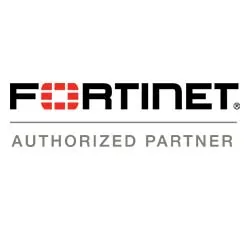Complete IT Services and IT Support For Small Businesses in Michiana
As a busy small business owner, you wear many hats. Keeping your technology running smoothly shouldn’t be another headache. We understand the frustration of IT issues interrupting your workflow. That’s why we offer comprehensive IT support and services designed specifically for small businesses like yours. Let us take the burden of IT off your shoulders so you can focus on what matters most – running your business.
If so, give us a call and let us show you what fast, friendly and highly responsive outsourced IT services should be for your small to medium business: Schedule Your Discovery Call at 574-385-9996

Graham Pearson, Owner
Call Us Today At 574-385-9996
Managed IT Services

Cybersecurity

Backup & Recovery

VoIP Phone System

SEO Services

Goshen's One Stop Shop For All Your Technology Needs
Why Choose Ma3SP
3 Big Reasons Why Businesses in Goshen Outsource their Technology
- Educator Mindset focusing on the needs of the client and providing them with the best possible experience.
- Predictable Costs help businesses achieve predictable IT costs by providing a fixed monthly fee for all IT support services.
- 30 Years IT Technology experience has given me the skills and knowledge necessary to provide you with the best possible IT support.

Graham Pearson, Owner
Not Ready To Call Us Just Yet?
 We understand that choosing the right IT support for your small business can be a crucial decision. To assist you in making an informed choice, we are pleased to offer you a complimentary report. This resource will provide valuable insights into the key considerations when selecting an IT company to support and enhance your business operations.
We understand that choosing the right IT support for your small business can be a crucial decision. To assist you in making an informed choice, we are pleased to offer you a complimentary report. This resource will provide valuable insights into the key considerations when selecting an IT company to support and enhance your business operations.
Download This Report Instantly!
Read What Your Customers Are Saying
Graham always willing to help and share his vast knowledge. I highly recommend him. Every time I have a need no matter big or small Graham takes the time to help and if needed research the issue, I have known and used Graham for nearly 30 years, he is honest and truly cares about what he does for his clients
Brad S
I am very thankful for Graham, and Ma3SP, and his willingness to help solve our IT issues. Graham also is focused on making sure we are utilizing our system fully and seeing where we can consolidate our systems to save money, time, and resources.
Nate J
I am writing to express my sincere gratitude to Graham and his company for their invaluable contributions to my business. Graham’s background as an educator has given me a deep understanding of the industry, and his technical knowledge and willingness to stay on top of the latest trends have enabled us to reach new financial heights.
Randal H
We’re Proud To Partner With The Best Businesses In The Industry






